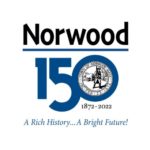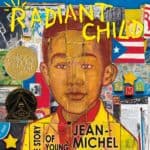
28
MayProud to be Here
 I recently moved into my position as the Adult Services Librarian at the Morrill Memorial Library after working in nearby Sharon, Mass. for about five years. When I told people at the Sharon Public Library about my new job in Norwood, the typical response was a wide-eyed, “Oh, you’re going to work in the city!” I’m not convinced about the term “city,” but Norwood is definitely bigger and more bustling, and I was very excited about the prospect of joining MML’s staff as part of the Norwood community.
I recently moved into my position as the Adult Services Librarian at the Morrill Memorial Library after working in nearby Sharon, Mass. for about five years. When I told people at the Sharon Public Library about my new job in Norwood, the typical response was a wide-eyed, “Oh, you’re going to work in the city!” I’m not convinced about the term “city,” but Norwood is definitely bigger and more bustling, and I was very excited about the prospect of joining MML’s staff as part of the Norwood community.
But I’ll be honest; underneath my excitement, I was nervous about the new job, too. It’s not that I felt unprepared or anxious about the work ahead of me, and certainly all of the staff members I met when I came to interview were friendly and welcoming. Nevertheless, I’m nonbinary–I use they/them pronouns, and my gender expression is fluid from day to day, in ways that some people find difficult to parse–and unfortunately there is no telling how a new workplace or community will react to that in practice. In a time when misinformation about trans people abounds and laws aimed at barring trans youth from participating in sports, removing LGBTQ+ content from K-12 classrooms, restricting gender nonconforming people’s ability to use public restrooms, and limiting trans patients’ access to health care are making their way through state legislatures throughout the country, it can feel daunting to be out and visibly trans. Massachusetts is one of the most advanced states in regards to LGBTQ+ policies, yet the so-called LGBTQ+ “panic” defense is still allowable in courts and the RMV only started allowing an X marker on drivers’ licenses as of May 2019. Even in affirming spaces with well-intentioned allies, accidental misgendering happens, paperwork and policies are chock full of binary language, and I often find myself positioned as a de facto educator as the only (visible) trans/nonbinary person in the room. And like I said before, not everyone knows how to react to my genderfluid presentation. Which is all to say that, yes, I felt a little cautious.
I’m thrilled to say that my trepidation was unfounded. The Library and the Town of Norwood have taken steps to be proactively supportive of me, my colleagues have been extraordinarily conscientious, and I’ve felt empowered to bring my authentic self and perspective to the table. Since arriving, I’ve had the opportunity to dive into a number of projects, but the one that is most near and dear to my heart is the upcoming slate of programs we have planned in celebration/observance of Pride Month. The programs are the result of a collaboration between the Adult and Children’s Services departments and include two Pride-inspired Take & Make children’s crafts; “The Pineapple Project,” an original play about gender creativity for kids on June 10th; two programs featuring local drag performers, including a story hour for families on June 16th and a panel discussion for adults on June 24th; a presentation by the Norwood Historical Society’s President, Dr. Cashman Kerr Prince, about Norwood’s historical dandy, F. Holland Day, on June 21st; and more. To see the full offering of programs and/or to register, visit the Library’s calendar: norwoodlibrary.org/morrillcalendar.
My experience in Norwood has been excellent thus far, and for that I feel fortunate. I also recognize that I am quite privileged in this and other regards. The reality is that trans, nonbinary, and gender nonconforming individuals still face discrimination in ways both large and small at work and/or in their lives more broadly. I think that one of the major reasons why discriminatory attitudes and laws toward trans and nonbinary people persist is due to a lack of widespread education around the simple matter of what it means to be trans, nonbinary, and/or gender nonconforming. For example, take the issue of trans athletes in sports. At a very cursory glance, arguments in support of “protecting” cis athletes might seem compelling. But as soon as you examine the issue more critically, the answer becomes much less cut-and-dry, revealing insidious tendrils of transphobia and a lack of real scientific evidence. Kirstin Cronn-Mills wrote an excellent book back in 2016 anticipating this very question; check out LGBTQ+ Athletes Claim the Field: Striving for Equality for a thorough, well-researched take.
Likewise, I encounter a lot of people who are familiar with the concept of a nonbinary gender identity, but who have never actually met or interacted with anyone who is publicly known to be nonbinary. And it’s certainly true that, up until recently, our society simply didn’t have the language to describe gender nonconformity, fluidity of gender expression, or what being nonbinary meant. Luckily that is now changing, and people are beginning to write guides to help others navigate terms and ideas. Stuart Getty’s graphic nonfiction book, How to They/Them: A Visual Guide to Nonbinary Pronouns and the World of Gender Fluidity, is an excellent, concise example that provides information, insight, and actionable advice for interacting with gender nonconforming individuals. If you’re not into visual art and prefer a more textbook style, try Lee Airton’s accessible primer, Gender: Your Guide, instead.
Of course, in my opinion, there is no better way to become familiar with different perspectives, voices, and experiences than through the lens of fiction. While the pool of books depicting nuanced, contemporary queer experiences is still relatively small, there is a growing number of authors contributing to this body of literature. Some notable recent examples of trans and nonbinary characters in literature include: Pew by Catherine Lacey, which is the study of a small town tested by the presence of a peaceful stranger whose gender-ambiguity nevertheless becomes a source of resentment and strife; Felix Ever After by Kacen Callender, a YA novel told from the perspective of a queer teen questioning his gender identity and finding his place in the world; and The Empress of Salt and Fortune by Nghi Vo, a fantasy novella in which an itinerant nonbinary scribe records the story of an exiled empress. If you’ve already read these, or you just want more great titles, the ALA maintains a “Rainbow Book List” with plenty of additional recommendations: glbtrt.ala.org/rainbowbooks.
If you’re ever in the Library, feel free to stop by the Reference Desk and say hello. I’m proud to be working here in Norwood.
Hilary Umbreit (they/them) is the Adult Services Librarian at the Morrill Memorial Library in Norwood, MA. Look for their article in the May 27, 2021 issue of the Transcript and Bulletin.








